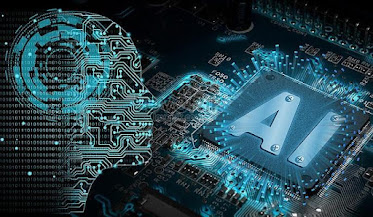How Artificial intelligence (ChatGPT) is transforming the planet for the betterment of humanity.
The world as we know it is fast changing as a result of artificial intelligence (AI). From healthcare to banking to transportation, cutting-edge technology is altering practically every area of human progress. AI has the capacity to transform civilization, but it also poses fundamental ethical and safety concerns regarding modern technology.
Artificial intelligence has already made substantial contributions to the field of healthcare. Machine learning algorithms are capable of analyzing massive volumes of medical data in order to detect trends and make accurate diagnoses. AI technologies can potentially help surgeons during surgery by delivering real-time information and enabling more exact incisions. Moreover, AI is being utilized to generate novel therapies and medications, leading to advances in the battle against illnesses like cancer.
Finance is another sector where AI is having a significant influence. AI-powered computers can mine massive volumes of financial data for trends and generate accurate forecasts. This technology detects fraud, manages risk, and makes investment choices. Moreover, artificial intelligence is being utilized to create new financial goods and services, such as individualized investment advice and automated trading systems.
Another area where AI is affecting the game is transportation. Self-driving vehicles and trucks are currently on the road, with the potential to cut accidents and improve traffic flow significantly. AI-powered drones are also being utilized for anything from package delivery to search and rescue missions.
Artificial intelligence is also changing the way we work. Many manual tasks are already being replaced by automation, but AI is also allowing new sorts of labor. AI-powered virtual assistants and chatbots, for example, are becoming more widespread in customer support and sales positions. Furthermore, AI is being utilized to automate numerous monotonous activities, allowing humans to focus on more difficult and creative tasks.
Nonetheless, the fast growth of AI creates significant ethical concerns. One source of concern is the potential for AI to be used maliciously, such as in cyberattacks or public opinion manipulation. Furthermore, if AI is not developed and applied in a fair manner for all, it has the potential to worsen current disparities. Concerns have also been raised concerning the influence of automation on the labor market, as many manual tasks become obsolete.
.jpg)
Another source of concern is the possibility of AI making choices without human scrutiny. While machine learning algorithms can be quite accurate, they can also make errors or reinforce biases that exist in the data on which they are taught.
To address these issues, there is a rising effort to set ethical norms for the creation and use of artificial intelligence. The European Union, for example, has published a set of ethical rules for AI that include values such as openness, human supervision, and responsibility. The UN has also asked for the creation of international ethical norms for AI.
Another critical problem is the need for AI education and training. As artificial intelligence (AI) grows more significant in many industries, there is a rising demand for people who have the skills and understanding to create and operate with these technologies. Not just computer scientists and engineers, but also politicians, ethicists, and social scientists, are included.
Ultimately, AI has a massive and complex influence on human progress. While this technology has numerous potential benefits, it also presents significant ethical concerns that must be addressed. As we continue to research and use AI, we must guarantee that it is done in a safe, ethical, and egalitarian manner for everybody.






0 Comments
Thanks for your Comment